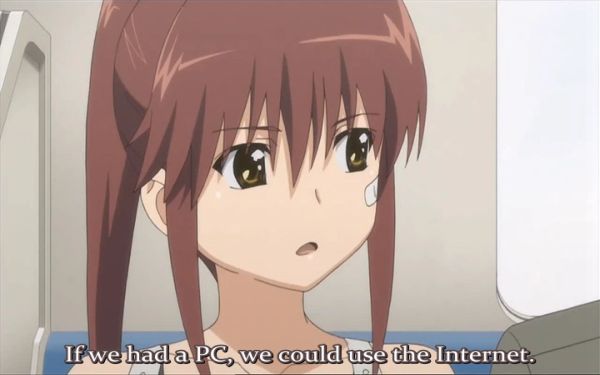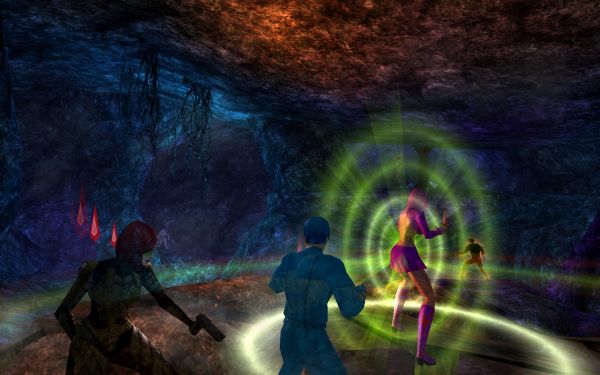
Is the monster inside you growing bigger and bigger? Religion can help! Probably. At least some religions.
Some time ago said something impolite but true: People are stupid and crazy. By this I mean that throughout history, or even today, most people are not very bright, and not entirely sane either. Â Even in our enlightened (?) age, there is hardly a soul that does not harbor some phobia or addiction or obsession or fetish. For some of us, these don’t hamper us much in ordinary life, and tend to diminish over time. (Or we outgrow them.) Not everyone is so blessed, though: Many people live in severe suffering even if they don’t have bodily pain.
I believe we should see the world’s religions in this light. To refer to one of them, there is a story of some people who were entrusted fairly large amounts of money while their boss was abroad. Unfortunately, one of them buried his part of the money, then dug it back up when his master returned. Â This did not go over well: Â “Why didn’t you at least place your money in the bank so I could get it back with interest!” Â One interpretation of this is simply: Â If you don’t know what to do, listen to someone who knows better than yourself.
Organized religion is basically some people recognizing that there are others who are saner than themselves, and taking their advice. (And then someone finds a way to make money from it. But let us skip that part today.)
So basically, people don’t become stupid and crazy from religion. Rather, they are already so stupid and crazy that they see their religion as an oasis of insight and peace by comparison. This holds true even if the religion is rather disturbing as seen by a more enlightened soul. Â For instance, it is unlikely that anyone goes to listen to Reverend Jeremiah Wright with the thought: “I need to dumb down, I need to become more crazy. This guy should help.” Â Rather, if they feel affected that way, they are unlikely to ever come back. His regulars are people to whom this guy is a paragon of sanity.
The same understanding applies to history. Old religions, such as the first books of the Old Testament, contain some pretty bizarre stuff. Like the commandment to kill any couples that have sex during menstruation, to take a well known example. If you think that’s bad, keep in mind that to sentence someone to death Moses required two or three reliable witnesses, that is to say adult men of good repute. Â The notion that people at the time lived in a society where unfriendly adult men of good repute witnessed your menstruation and your sex is rather more disturbing than the law itself. Â In what kind of bizarre world would this be a problem in the first place?
The world really was bizarre back then. High school history books don’t go into this, which may be for the best concerning the stability of mind among their readers. But civilization back then was a new thing and was basically still experimental. Like a beta version, you know. Not very refined, lacking features, and prone to crashing.
There are several such seemingly absurd passages in old religions. God hates shrimps? Cows are holy? Or oaks? Blood from heifers take away sins? And yet we can have confidence that to people at the time, these doctrines were a great relief from the craziness that was tumbling around inside their heads. “OMG there is a cow, is it evil? What is the purpose of cows in the cosmic order of things? What will happen to me if I don’t find out?”
What is considered crazy varies not only with the times but also somewhat with geography. For instance I noticed this while reading the recently translated book Change Your Life, Change the World by Japanese author Ryuho Okawa. Â It contained much general spiritual reflection and modern, sensible ethical advice. Â It also included a couple paragraphs about how souls of aliens from the Pleiades had recently begun incarnating in human bodies and would prepare for the upcoming mass immigration from their home planets of aliens in physical form. Â Then the usual exhortations toward love, wisdom, self-reflection and progress resumed. Â I can only assumed that this must be unremarkable to the Japanese audience, where Mr Okawa has numerous bestsellers and is consulted by leading politicians. Â (A recent prime minister there, by the way, was called “the alien” by his friends, and his wife had been abducted by Venusians. Â Neither of these were part of his decision to step down recently.)
So, religion has been a steady influx of sanity in a world where complete hysteria was the usual order of the day. It still is, but an increasing part of the populace is getting more sane than their priests. Thank the Light for that! So does that mean we should abandon the concept of organized religion and leave it to the shrinks to clean up the remaining insanity?
Well, as an individual, you should probably not stick with a religion you consider less sane than yourself. But in that comparison, don’t be too quick to overestimate yourself, as people often are. If you are still unable to control your body when influenced by anger or lust, fear or disgust, then you’re still in kindergarten and need to work on your sanity. Â The fact that some insane behavior is common in your culture does not make it sane.
For instance, we are aware that phobia – irrational fear – is not quite sane. But pretty much nobody thinks of the opposite, irrational lack of fear. Â Here in Norway, for instance, it is quite common to fearlessly have unprotected sexual intercourse with white people. We are also adopting the American way of eating (huge portions), without fear of the unpleasant lfiestyle diseases that follow. Taking some advice from old-fashioned religion could have prevented all of this “quiet insanity”.
That is not to say that religions should not upgrade themselves. They have certainly done that before. Whenever you run into one of those people who get obnoxious about how the Bible is God’s Unchanging Word, just ask if you can assume that he really does greet the brethren with a holy kiss, and literally wash their feet. Chances are he does not, because no matter how much it is God’s Word, we quietly ignore it when it gets icky. Or insane. Â This was a natural process until recently, when some people – mostly in America – regressed. Â Contrast this with St Augustine, one of the church fathers who lived around the onset of the Dark Ages. He rightly argued that the pagans would think we were fools if we interpreted the Book of Genesis literally. This is still sane advice. Certain other religions could have something to learn too.
I am still not convinced that we’ll increase the sanity factor of religion by including UFOs though. At least not here in Europe. (Your UFO experiences may vary, in which case you may want a religion that has a clear view on how to deal with extraterrestrials.)









